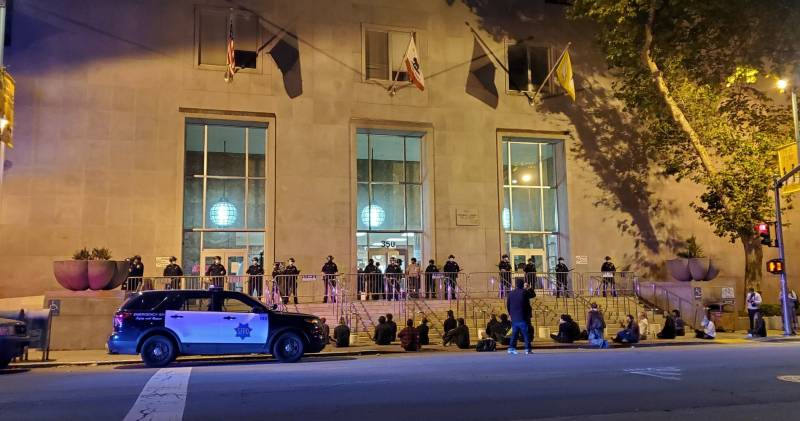The ACLU of Northern California criticized the emergency measures, which ban most residents in the affected communities from leaving home between 8 p.m. and 5 a.m., as hasty and lacking clarity as to their scope and duration.
"Blanket closure of all public spaces gives police unfettered discretion, which has shown to lead to selective and biased enforcement, and high potential for the exact type of racialized abuses that are being protested," the ACLU chapter said in a statement.
The civil liberties group's Southern California chapter issued a more formal challenge to a curfew order imposed across Los Angeles County. In a letter, the chapter argued that the order violates state law by being overly broad — covering millions of people in areas where no unrest has taken place — and infringes upon First Amendment rights.
“Counties in Southern California are suppressing a huge amount of very important peaceful protests in the name of stopping a small number of people who in a few places have engaged in looting,” Ahilan Arulanantham, senior counsel at the chapter, said in an interview.
In Oakland, officials initially resisted instituting a curfew, but the city joined an Alameda County-wide emergency order on Monday.
“We’re very appreciative that the city has given us the tool of the curfew, simply really to interdict and abate that violence,” Oakland interim Police Chief Susan Manheimer said Tuesday afternoon.
“Where it crosses the line is when anyone tries to harm anyone else, including our officers who have been the target of significant rocks, bottles, Molotov cocktails and incendiary devices, and to gunfire," Manheimer said. "We’ve had gunfire at our police building. We’ve had gunfire out on the streets.”
David Levine, a professor at UC Hastings College of the Law in San Francisco, says public officials are trying to strike a balance in how they respond to the unrest that's occurred alongside the current protests.
"With a curfew, the issue is whether it solves a problem or creates a problem in the sense that if the if the populace thinks that the government is coming down with too heavy a hand, it might just enrage people and maybe even get more people out on the streets," Levine said Tuesday.
But officials are weighing that possibility against something even more draconian, he said.
“For example, the president's threat to put the military on the streets, which I think by and large has been condemned by elected officials. ... And so I think the perception is, given the amount of damage that we've seen in Oakland, in Los Angeles, New York City, a curfew is a modest escalation in pressure to get people to come to peacefully protest and to comply with the law.”
Others have pointed out that another problem with the curfews, aside from the constitutional and other problematic aspects, is that it's subject to selective enforcement.
“If you are an essential worker, you have to believe that the color of your skin and also what you're wearing and things like that are going to influence how safe you feel in being able to assert this exemption when the police try to stop you, the ACLU's Arulanantham said. "... It's ironic because that is the underlying issue that the protests are about and the government's response is just heightening the exact injustice that the protests were trying to address in the first place.”
Bay Area Journalist Shane Bauer offered a case in point, in which an African American man was arrested in Oakland on Monday after the 8 p.m. curfew took effect. Officers appeared to take him into custody because he had no media credential.
Bauer, who was standing next to the man and said he also had no media credential, was not accosted.

